Here’s the .pdf:
Participants in World War I
Archive for the ‘Chapter 30’ Category
14 Feb
Participants in World War I
13 Feb
The 1918 Influenza Pandemic
This site has a nice overview of the flu outbreak worldwide:
http://virus.stanford.edu/uda/
Then make sure that you read this article from the New York Times, which mentions how St. Louis’s response was much wiser than Philadelphia’s:
http://www.nytimes.com/2007/04/17/health/17flu.html
And here is the short article by Tim O-Neill from the Post-Dispatch, which I will just copy here because they never keep their links current:
ST. LOUIS – In October 1918, the meat grinder known as World War I was lurching to its exhausted conclusion in the Argonne forest. Another, even bigger, killer was just getting started.
The 1918-19 influenza pandemic, known to history as the Spanish flu, was racing across the world. Estimates of the flu’s worldwide toll range from 25 million to 50 million deaths, including 675,000 in the U.S. The numbers overwhelmed the butchery of four years of ghastly trench war, which managed to kill about 8.6 million, including 116,000 American doughboys.
In St. Louis, a strong-willed doctor moved quickly, drastically and successfully to limit the horror. He was Dr. Max C. Starkloff, then in the 15th of his 30 years as city health commissioner. He prevailed on Mayor Henry Kiel to let him order the closing of almost all public places, including churches, schools, dance halls, fraternal lodges, theaters – even open-air funerals. His proclamation said that “Spanish flu is now present and probably will become epidemic in St. Louis.”
The Liberty Loan Organization canceled its rallies. Washington University football players wore masks in practice. St. Louis police officers were told to forgo arrests on petty cases, the better to reduce court docket calls.
Starkloff issued his order on Oct. 7, 1918, only three days after the first reported case of influenza in the city. But there already had been two flu deaths among the soldiers just south of the city at Jefferson Barracks, where the hospital population was 800 and growing quickly.
Starkloff’s strategy was “social distancing,” the simple practice of keeping people away from one another. During the brief but deadly sweep of the flu that fall, the death rate in St. Louis was 2.8 per 1,000 residents, lowest among the nation’s major cities. The rate was 8.0 in Pittsburgh, 7.6 in San Francisco and 7.1 in Kansas City.
Businessmen whose sales plunged beseeched City Hall to loosen the rules. Catholic Archbishop (later Cardinal) John J. Glennon urged Starkloff to reopen the churches. But the son of a German-born doctor held firm and had the trust of Mayor Kiel, who told Starkloff, “I don’t want anyone to die. Therefore, I shall support you.”
On Nov. 11, Armistice Day, Starkloff let downtown stores sell American flags, but only outside on the sidewalks. He allowed the schools to reopen a few days later and lifted the last of his ban on Nov. 18. Near month’s end, Starkloff closed the schools again for a short time.
Deaths continued, even spiking in December. But the number of new cases fell. The virus worked quickly through its victims, then faded. It had infected 31,500 people in St. Louis and killed 1,703.
Starkloff retired in 1933 and died at home in Carondelet in 1942 at age 82. Shortly after his death, a grateful city renamed its City Hospital just south of downtown in memory of him. One of his great-grandchildren is Max Starkloff, a local leader in disability services who founded Paraquad Inc. and the Starkloff Disability Institute.
12 Feb
Poetry in World War I: Owen’s “Mental Cases”
Before reading the poems, read this brief introduction. Then read this poem, complete with explanation.
Mental Cases
Who are these? Why sit they here in twilight?
Wherefore rock they, purgatorial shadows,
Drooping tongues from jaws that slob their relish,
Baring teeth that leer like skulls’ teeth wicked?
Stroke on stroke of pain,-but what slow panic,
Gouged these chasms round their fretted sockets?
Ever from their hair and through their hands’ palms
Misery swelters. Surely we have perished
Sleeping, and walk hell; but who these hellish?
-These are men whose minds the Dead have ravished.
Memory fingers in their hair of murders,
Multitudinous murders they once witnessed.
Wading sloughs of flesh these helpless wander,
Treading blood from lungs that had loved laughter.
Always they must see these things and hear them,
Batter of guns and shatter of flying muscles,
Carnage incomparable, and human squander
Rucked too thick for these men’s extrication.
Therefore still their eyeballs shrink tormented
Back into their brains, because on their sense
Sunlight seems a blood-smear; night comes blood-black;
Dawn breaks open like a wound that bleeds afresh.
-Thus their heads wear this hilarious, hideous,
Awful falseness of set-smiling corpses.
-Thus their hands are plucking at each other;
Picking at the rope-knouts of their scourging;
Snatching after us who smote them, brother,
Pawing us who dealt them war and madness.
————————–Wilfred Owen
Links for More Information:
More of Owen’s poetry
The Wilfred Owen Multimedia Archive
12 Feb
The Story of the Christmas Truce
It’s a wonderful little tale– On Christmas, 1914, an unofficial truce was allegedly declared at one place along the front, and presents and goodwill was exchanged between German and British soldiers. The story even goes that there was a soccer game. Here (http://www.firstworldwar.com/features/christmastruce.htm) is the article from a very good site on information about the Great War.
Here is an excerpt:
”
‘Scots and Huns were fraternizing in the most genuine possible manner. Every sort of souvenir was exchanged addresses given and received, photos of families shown, etc. One of our fellows offered a German a cigarette; the German said, “Virginian?” Our fellow said, “Aye, straight-cut”, the German said “No thanks, I only smoke Turkish!”… It gave us all a good laugh.’
Hulse’s account was in part a letter to his mother, who in turn sent it on to the newspapers for publication, as was the custom at the time. Tragically, Hulse was killed in March 1915.
On many parts of the line the Christmas Day truce was initiated through sadder means. Both sides saw the lull as a chance to get into no-man’s land and seek out the bodies of their compatriots and give them a decent burial. Once this was done the opponents would inevitably begin talking to one another.
The 6th Gordon Highlanders, for example, organised a burial truce with the enemy. After the gruesome task of laying friends and comrades to rest was complete, the fraternisation began.
 With the Truce in full swing up and down the line there were a number of recorded games of soccer, although these were really just ‘kick-abouts’ rather than a structured match.
With the Truce in full swing up and down the line there were a number of recorded games of soccer, although these were really just ‘kick-abouts’ rather than a structured match.
On January 1, 1915, the London Times published a letter from a major in the Medical Corps reporting that in his sector the British played a game against the Germans opposite and were beaten 3-2.
Kurt Zehmisch of the 134th Saxons recorded in his diary: ‘The English brought a soccer ball from the trenches, and pretty soon a lively game ensued. How marvellously wonderful, yet how strange it was. The English officers felt the same way about it. Thus Christmas, the celebration of Love, managed to bring mortal enemies together as friends for a time.’
The Truce lasted all day; in places it ended that night, but on other sections of the line it held over Boxing Day and in some areas, a few days more. In fact, there parts on the front where the absence of aggressive behaviour was conspicuous well into 1915.
Captain J C Dunn, the Medical Officer in the Royal Welch Fusiliers, whose unit had fraternised and received two barrels of beer from the Saxon troops opposite, recorded how hostilities re-started on his section of the front.
Dunn wrote: ‘At 8.30 I fired three shots in the air and put up a flag with “Merry Christmas” on it, and I climbed on the parapet. He [the Germans] put up a sheet with “Thank you” on it, and the German Captain appeared on the parapet. We both bowed and saluted and got down into our respective trenches, and he fired two shots in the air, and the War was on again.’
 The war was indeed on again, for the Truce had no hope of being maintained. Despite being wildly reported in Britain and to a lesser extent in Germany, the troops and the populations of both countries were still keen to prosecute the conflict.”
The war was indeed on again, for the Truce had no hope of being maintained. Despite being wildly reported in Britain and to a lesser extent in Germany, the troops and the populations of both countries were still keen to prosecute the conflict.”
Read the whole thing.
12 Feb
Poetry in World War I: MacCrae
In Flanders Fields
In Flanders fields the poppies blow
Between the crosses, row on row,
That mark our place; and in the sky
The larks, still bravely singing, fly
Scarce heard amid the guns below.
We are the Dead. Short days ago
We lived, felt dawn, saw sunset glow,
Loved and were loved, and now we lie
In Flanders fields.
Take up your quarrel with the foe:
To you from failing hands we throw
The torch; be yours to hold it high.
If ye break faith with us who die
We shall not sleep, though poppies grow
In Flanders fields.
———————— John MacCrae
What does this poem imply about the meaning of sacrifice by fallen soldiers?
7 Feb
Poetry of Langston Hughes
Mother to Son
Well, son, I’ll tell you:
Life for me ain’t been no crystal stair.
It’s had tacks in it,
And splinters,
And boards torn up,
And places with no carpet on the floor—
Bare.
But all the time
I’se been a-climbin’ on,
And reachin’ landin’s,
And turnin’ corners,
And sometimes goin’ in the dark
Where there ain’t been no light.
So, boy, don’t you turn back.
Don’t you set down on the steps.
‘Cause you finds it’s kinder hard.
Don’t you fall now—
For I’se still goin’, honey,
I’se still climbin’,
And life for me ain’t been no crystal stair.
The Negro Speaks of Rivers
I’ve known rivers:
I’ve known rivers ancient as the world and older than the
flow of human blood in human veins
My soul has grown deep like the rivers.
I bathed in the Euphrates when dawns were young
I built my hut near the Congo and it lulled me to sleep.
I looked upon the Nile and raised the pyramids above it.
I heard the singing of the Mississippi when Abe Lincoln
went down to New Orleans, and I’ve seen its muddy
bosom turn all golden in the sunset
I’ve known rivers:
Ancient, dusky rivers.
My soul has grown deep like the rivers.
6 Feb
Questions- Chapter 30
These are due Tuesday, February 11, 2014.
Chapter 30 Questions
1. What did Wilson mean by “overt acts” by Germany? What finally pushed the US into the war?
2. What economic factors mitigated against the US joining the war?
3. Upon what idealistic moral foundation did Wilson establish the case for going to war? How did the Fourteen Points reflect his ideals?
4. What is the relationship between wartime propaganda and wartime limits on free speech? What happened to Eugene Debs?
5. How did the need to increase wartime economic production increase the federal government’s power and interference in the economy? What federal agencies were established to increase economic production and to help pay for the war? (see pp. 700 and 704)
6. How were workers’ concerns and needs impacted by the crisis of war? How did labor conflict escalate racial tensions, and why?
7. How did the war impact the women’s movement? What did the passage of the Sheppard-Towner Act in 1921 signify about attitudes toward women?
8. Why was conscription necessary—and controversial, especially considering the US’s late entry into the war? How long did it take to get troops into Europe after the US declared war?
9. In what battles did the American Expeditionary force play a major role? Where were these battles? Ultimately, what were the most important American contributions to the war?
10. Why was Wilson undercut as a negotiator at the Paris Conference? What role did partisan politics in America play? How did his dream of a League of Nations actually weaken his effectiveness in negotiations?
11. Explain what impact the war had on imperialism.
12. Create a chart depicting what France, Italy, and Japan received from the negotiations.
13. How did the treatment of Germany in the negotiations undercut the hopes for a lasting peace?
14. What were the main criticisms of the potential League of Nations? Who were the “irreconcilables?”
15. What price did Wilson pay over the controversial Treaty of Paris?
16. What did Lodge do to try to kill the League of Nations? What paradoxical response did Wilson then have?
17. Why was the election of 1920 called a “solemn referendum?” What was the actual and symbolic result?
18. What were the long-term consequences of the failure of the Treaty of Versailles?
9 Feb
The effects of World War I on the Middle East
In his book, A Peace to End All Peace, historian David Fromkin outlined the lasting effects of the way the breakup of the Ottoman Empire was handled. One of Wilson’s Fourteen Points had dealt with the need to redraw boundaries of countries that had been within empires so that ethnic groups would be given their own countries, but this was obviously not accomplished either in Europe or in southwest Asia. Here is a pretty good overview of this book which you should read.
The term “Balkanization” is often used to describe the kind of breakup that did occur. Balkanization means the breakup of a former country into many mutually hostile ethnic enclaves, as happened in the former Yugoslavia at the end of the Cold War. Since Yugoslavia is on the Balkan peninsula, the term is “balkanization.” The forces that led to the national boundaries that did occur included both native overlords as well as European powers seeking to advance their own aims in the region, as you will discover below.
From the BBC, there is an excellent site that explains the course of the war against the Ottoman Empire. Here is an excerpt from Professor David Woodward’s account entitled, The Middle East in World War I:
The Middle East during World War One
Professor David Woodward
The aftermath

“The war ended with the British occupying the territory that was to become Iraq, Palestine, Trans-Jordan, Syria and Lebanon. With the Ottoman Empire destroyed, Russia paralysed by foreign intervention and civil war, and French influence limited somewhat by their minor military role in the Middle East, Britain’s military success made her the dominant power in the region. The resulting settlement, which fostered an instability that continues to be a source of conflict today, generated much controversy at the time and has continued to do so ever since.
‘They believed that the western powers, especially the British, had acted with arrogance.’
Employing bags of gold, the diplomacy of Lawrence of Arabia, and promises of Arab independence, the British had encouraged an Arab uprising in 1916 against the Turks. Although the Hashemite Arabs were rewarded with considerable territory, they and other Arab nationalists believed that they had been ‘robbed’ when the British did not fully deliver on their pledges of independence. They believed that the western powers, especially the British, had acted with arrogance, drawing borders and creating nations with little or no regard for the wishes of the local inhabitants.
The fate of Palestine, occupied by the British, especially provoked Arab frustration and anger. (In 1917 the British Foreign Secretary, Arthur Balfour, had supported a Jewish home in Palestine.)
But in important respects the Arab view of the peace settlement (which is supported by many western historians) is a caricature of what actually happened. In a revisionist work, Efraim Karsh and Inari Karsh have made a convincing argument that many forces, both local and foreign, were at work at the time the settlement was agreed. In their words, ‘even at the weakest point in their modern history, during the First World War and its immediate wake, Middle Eastern actors were not hapless victims of predatory imperial powers, but active participants in the restructuring of their region.’
‘And if the French and British had granted ‘self-determination’…it is possible that the result would have been the balkanisation of the area.’
They argue, for example, that Iraq and Trans-Jordan were not simply British inventions, but owed their existence to a compromise between Hashemite imperial greed and well-intended British efforts to meet local needs and allay the fears and suspicions of their allies.
It is perhaps only proper to note that if Germany had won the war, the Ottoman Empire would have been expanded, subjecting many Arabs and other nationalities to its rule. And if the French and British had granted ‘self-determination’ to the inhabitants of this region it is possible that the result would have been the balkanisation of the area, with fragile and often antagonistic fiefdoms and kingdoms prevailing. It seems likely that, no matter how this war in the Middle East had been resolved, the region was destined to suffer instability and conflict in the years ahead.”
The entire article on the BBC website is actually quite good, and begins here. I strongly recommend it to you if you wish to understand the genesis of the problems the modern Middle East has faced as a legacy of imperialism. In fact, there are links to several other history articles on this page, and so if I were you, I would use this (http://www.bbc.co.uk/history/) as one of my reference sources.
8 Feb
Debs on the “Great” War
Excerpt: Eugene Debs lashes out against World War I
and calls on the crowd to join the Socialist party,
Canton, Ohio, June 16, 1918.
Comrades, friends and fellow-workers:
For this very cordial greeting, this very hearty reception, I thank you all with the fullest appreciation of your interest in and your devotion to the cause for which I am to speak to you this afternoon. [Applause.]
To speak for labor; to plead the cause of the men and women and children who toil; to serve the working class, has always been to me a high privilege; [Applause] a duty of love. I have just returned from a visit over yonder, where three of our most loyal comrades are paying the penalty for their devotion to the cause of the working class. [Applause.] They have come to realize, as many of us have, that it is extremely dangerous to exercise the constitutional right of free speech in a country fighting to make democracy safe in the world. [Applause.]
I realize that, in speaking to you this afternoon, there are certain limitations placed upon the right of free speech. I must be exceedingly careful, prudent, as to what I say, and even more careful and prudent as to how I say it. I may not be able to say all I think; but I am not going to say anything that I do not think. [Applause.] I would rather a thousand times be a free soul in jail than to be a sycophant and coward in the streets. [Applause and shouts.] They may put those boys in jail — and some of the rest of us in jail — but they can not put the Socialist movement in jail. [Applause and shouts.] Those prison bars separate their bodies from ours, but their souls are here this afternoon. [Applause and cheers.] They are simply paying the penalty that all men have paid in all the ages of history for standing erect, and for seeking to pave the way to better conditions for mankind. [Applause.]….
These are the gentry who are today wrapped up in the American flag, who shout their claim from the housetops that they are the only patriots, and who have their magnifying glasses in hand, scanning the country for evidence of disloyalty, eager to apply the brand of treason to the men who dare to even whisper their opposition to Junker rule in the United Sates. No wonder Sam Johnson declared that “patriotism is the last refuge of the scoundrel.” He must have had this Wall Street gentry in mind, or at least their prototypes, for in every age it has been the tyrant, the oppressor and the exploiter who has wrapped himself in the cloak of patriotism, or religion, or both, to deceive and overawe the people. [Applause.]
… Every solitary one of these aristocratic conspirators and would-be murderers claims to be an arch-patriot. Every one of them insists that the war is being waged to make the world safe for democracy. What humbug! What rot! What false pretense! These autocrats, these tyrants, these red-handed robbers and murderers, the “patriots,” while the men who have the courage to stand face to face with them, speak the truth, and fight for their exploited victims — they are the disloyalists and traitors. If this be true, I want to take my place side by side with the traitors in this fight! [Great applause.]
…How stupid and short-sighted the ruling class really is! Cupidity is stone blind. It has no vision. The greedy, profit-seeking exploiter cannot see beyond the end of his nose. … He has no capacity for literature; no appreciation of art; no soul for beauty. That is the penalty the parasites pay for the violation of the laws of life. The Rockefellers are blind. Every move they make in their game of greed but hastens their own doom…
Every time they strangle a Socialist paper they add a thousand voices proclaiming the truth of the principles of socialism and the ideals of the Socialist movement. They help us in spite of themselves. Socialism is a growing idea; an expanding philosophy. It is spreading over the entire face of the earth; it is as vain to resist it as it would be to arrest the sunrise on the morrow. It is coming, coming, coming all along the line. Can you not see it? If not, I advise you to consult an oculist.
Wars throughout history have been waged for conquest and plunder. In the Middle Ages when the feudal lords who inhabited the castles whose towers may still be seen along the Rhine concluded to enlarge their domains, to increase their power, their prestige, and their wealth, they declared war upon one another. But they themselves did not go to war anymore than the modern feudal lords, the barons of Wall Street go to war.[Applause.] The feudal barons of the Middle Ages, the economic predecessors of the capitalists of our day, declared all wars. And their miserable serfs fought all the battles. The poor, ignorant serfs had been taught to revere their masters; to believe that when their masters declared war upon one another, it was their patriotic duty to fall upon one another and to cut one another’s throats for the profit and glory of the lords and barons who held them in contempt. And that is war in a nutshell…
And here let me emphasize the fact — and it cannot be repeated too often — that the working class who fight all the battles, the working class who make the supreme sacrifices, the working class who freely shed their blood and furnish the corpses, have never yet had a voice in either declaring war or making peace. It is the ruling class that invariably does both. They alone declare war and they alone make peace.
“Yours not to reason why; Yours but to do and die.” That is their motto and we object on the part of the awakening workers of this nation. If war is right, let it be declared by the people. You who have your lives to lose, you certainly above all others have the right to decide the momentous issue of war or peace. [Applause.]….
Do you wish to hasten the day of victory? Join the Socialist Party! Don’t wait for the morrow. Join now! [Applause.] Enroll your name without fear, and take your place where you belong. You cannot do your duty by proxy. You have got to do it yourself, and do it squarely and then, as you look yourself in the face, you will have no occasion to blush. You will know what it is to be a real man or woman. You will lose nothing; you will gain everything. [Applause.] Not only will you lose nothing, but you will find something of infinite value, and that something will be yourself. And that is your supreme need — to find yourself — to really know yourself and your purpose in life. [Applause.]
You need at this time especially to know that you are fit for something better than slavery and cannon fodder. [Applause.] You need to know that you were not created to work and produce and impoverish yourself to enrich an idle exploiter. You need to know that you have a mind to improve, a soul to develop, and a manhood to sustain… You need to know that as long as you are ignorant, as long as you are indifferent, as long as you are apathetic, unorganized and content, you will remain exactly where you are.[Applause.] You will be exploited; you will be degraded, and you will have to beg for a job. You will get just enough for your slavish toil to keep you in working order, and you will be looked down upon with scorn and contempt by the very parasites that live and luxuriate out of your sweat and unpaid labor….
To turn your back on the corrupt Republican Party and the still more corrupt Democratic Party — the gold-dust lackeys of the ruling class [laughter] counts for still more after you have stepped out of those popular and corrupt capitalist parties to join a minority party that has an ideal, that stands for a principle, and fights for a cause. [Applause.] This will be the most important change you have ever made and the time will come when you will thank me for having made the suggestion. It was the day of days for me. I remember it well. It was like passing from midnight darkness to the noon-tide light of day. It came almost like a flash and found me ready.
…[The Democrats and Republicans are continually talking about your patriotic duty. It is not their but your patriotic duty that they are concerned about. There is a decided difference. Their patriotic duty never takes them to the firing line or chucks them into the trenches.
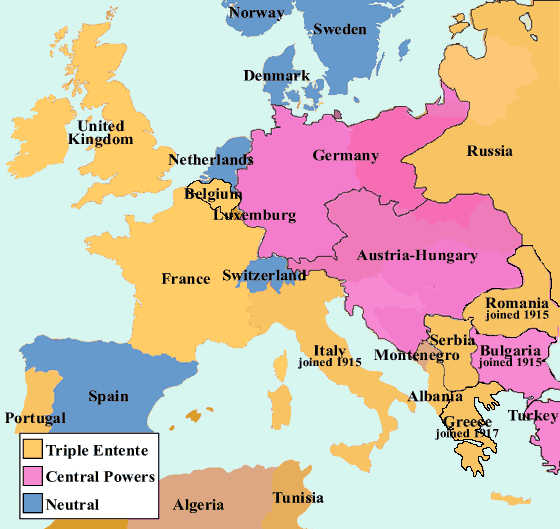
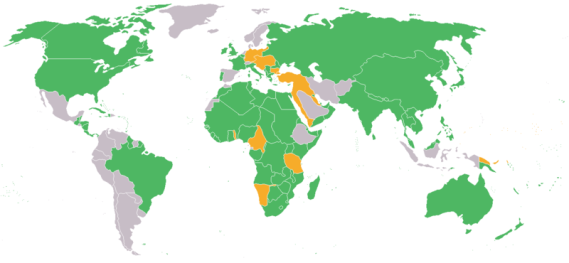
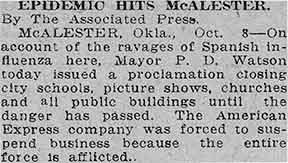
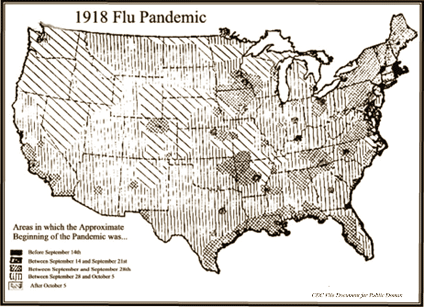
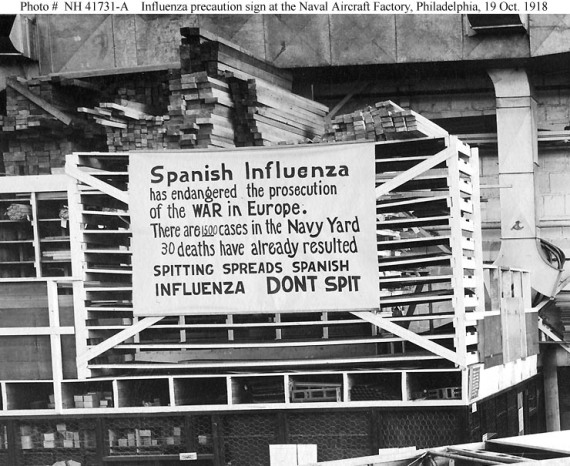
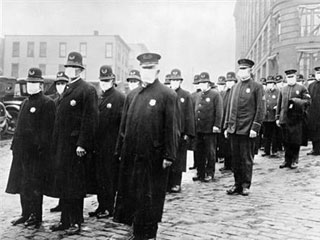

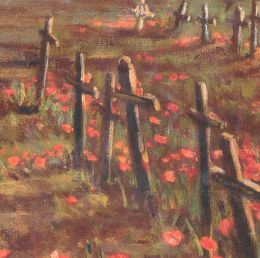
You must be logged in to post a comment.